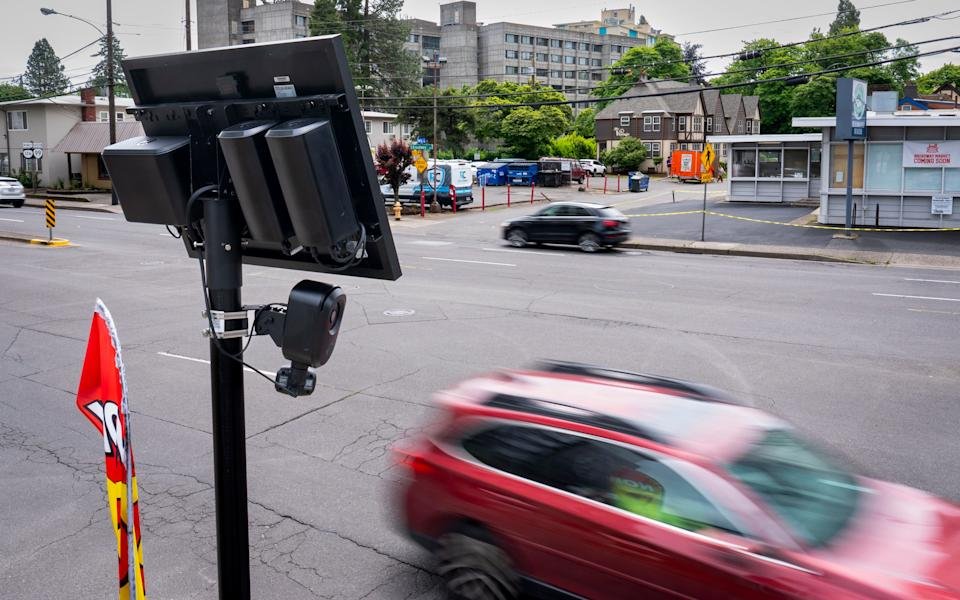ILLINOIS — State and local leaders in Illinois are moving quickly to curb improper access to automated license plate reader (ALPR) systems after revelations that out-of-state agencies used Illinois’ infrastructure to conduct searches involving abortion and immigration cases — a direct violation of state law.
The alarm was first raised when it was discovered that Mount Prospect’s license plate reader system had been accessed to locate a Texas woman who had reportedly received an abortion. This access was made possible through a “National Lookup” feature embedded in the ALPR system developed by Flock Safety, which allowed external agencies to tap into Illinois’ data sharing network without local approval.
Officials from Mount Prospect stated their own police department neither initiated nor participated in the searches. However, the town admitted that enabling the nationwide lookup feature occurred without fully understanding the consequences. The feature has now been disabled.
Secretary of State Calls for Reform
Illinois Secretary of State Alexi Giannoulias responded to the growing outrage by announcing that 46 out-of-state law enforcement agencies have now been blocked from accessing the ALPR network within Illinois.
He emphasized the need for accountability during a press conference:
“This is not about banging on Mount Prospect,” Giannoulias said. “This is about more broadly making sure that law enforcement agencies in Illinois follow the law and don’t give out personal data for reasons that should not be allowed.”
In response to the incident, Giannoulias has referred the matter to the Illinois Attorney General’s Office for possible criminal investigation and has launched an audit process to implement stronger privacy controls. He also called on Flock Safety to be more transparent about what its software features actually permit.
The Daily Herald editorial board also echoed these concerns, warning of the implications when surveillance tools designed for public safety are instead used to track individuals based on political or social agendas.
Tensions Around Abortion and Immigration
The misuse of license plate data has touched off a political firestorm, as it connects deeply with two highly charged issues: abortion rights and immigration enforcement. Illinois law prohibits the use of ALPR data in both contexts, specifically to protect medical privacy and immigrant communities.
The incident reportedly originated from Texas, where abortion laws are strict, and the woman in question may have been tracked across state lines. It’s still unclear whether the search was motivated by concern for her well-being or political interest in her actions.
Subsequent revelations revealed hundreds of additional illegal searches had been made by external law enforcement entities using Illinois’ systems, with many linked to immigration enforcement.
Read More: 2 Stabbing Victims Fight Back, Disarm Attacker With His Own Knife In Grant Park, Police Say
Local Governments Take Action
Following the incident in Mount Prospect, other municipalities are taking preventive steps. For example, Arlington Heights announced that it would temporarily block outside agencies from accessing their license plate reader data until stricter controls are in place.
These developments are sparking larger discussions about the balance between public safety and civil liberties. While ALPR technology can help track dangerous criminals — such as mass shooters or child abductors — it also poses real privacy risks if misused or inadequately controlled.
Call for Safeguards and Public Trust
Critics have pointed out that the current system lacks sufficient transparency, oversight, and public communication. They argue that Illinois residents deserve to know exactly who has access to their data, under what circumstances, and what protections exist against misuse.
The state’s next steps include:
-
A full audit of past out-of-state search activity.
-
Legislative proposals to improve data governance.
-
Public transparency reports from local departments using ALPRs.
Do you believe license plate readers are being used responsibly in your area? Should Illinois take more aggressive steps to regulate their use? Share your thoughts with us at ChicagoSuburbanFamily.com.












